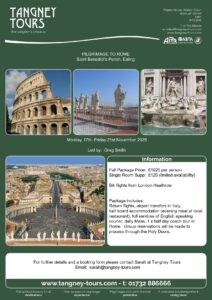Dear Parishioner,
Redemptorist Denis McBride tells a story of a young soldier in Napoleon’s army who deserted but who was captured fairly quickly. The only way to discourage such behaviour was to impose a sentence of death. The mother of the young soldier went to the Emperor and pleaded for his life. Napoleon, whilst sympathetic to the mother’s pleas nevertheless insisted on the seriousness of the offence and judged that he clearly did not deserve mercy. “I know he doesn’t deserve mercy” the mother answered. “It wouldn’t be mercy if he deserved it.”
And that is the point of mercy, says McBride, no-one deserves it; unlike justice, mercy is pure gift. Mercy does away with wrongs committed and does away with transgressions, it is the free response of the person who is grieved. Mercy does not deny guilt, it recognises guilt but does not ask for pay-back for the wrong done.
In today’s Gospel we hear of a woman who is caught “in flagrante delicto”. No way out, no escape, no excuses. She is judged to have sinned and has been found wanting (let’s for now leave aside that there were actually two parties to this act!) You can almost feel a kind of smugness which says that it is OK to hold people in their mistakes and we must never let them forget it. So we may say like the Pharisee in the Temple who raises his eye to heaven “Thank God I am not like other people.” But isn’t it a fairly common human trait, an all-too-common human procedure? Later in his gospel John reminds us that the resurrected Christ breathes on the disciples and says: Receive the Holy Spirit. If you forgive the sins of any they are forgiven; if you retain the sins of any, they are retained. So we can do one of two things: either hold each other in our mistakes or let each other go. And sometimes when we see people we do see them through the lens of their mistakes and in doing so we hold people in their sin. ‘You have been found wanting, and I will never forget it.’ A pretty unsavoury state of mind by most standards.
This story is missing from early manuscripts of the gospel, perhaps as a result of a problem that people had with Jesus in the early church whose penitential practices were quite severe; and possibly a problem too with God: really believing in what Graham Greene has called “the awful strangeness of God’s mercy”.
Pope Francis has much to say about divine mercy, he calls it the ‘beating heart of the Gospel: ’We need’ he says, ‘constantly to contemplate the mystery of mercy. It is a wellspring of joy, serenity, and peace. Our salvation depends on it. Mercy: the word reveals the very mystery of the Most Holy Trinity. Mercy: the ultimate and supreme act by which God comes to meet us. Mercy: the fundamental law that dwells in the heart of every person who looks sincerely into the eyes of his brothers and sisters on the path of life. Mercy: the bridge that connects God and man, opening our hearts to the hope of being loved forever despite our sinfulness.’ (Misericordiae Vultus #2 for the Extraordinary Jubilee of Mercy 2015).
More than ever during Lent we need to learn how to be merciful, just as our heavenly Father is merciful.





